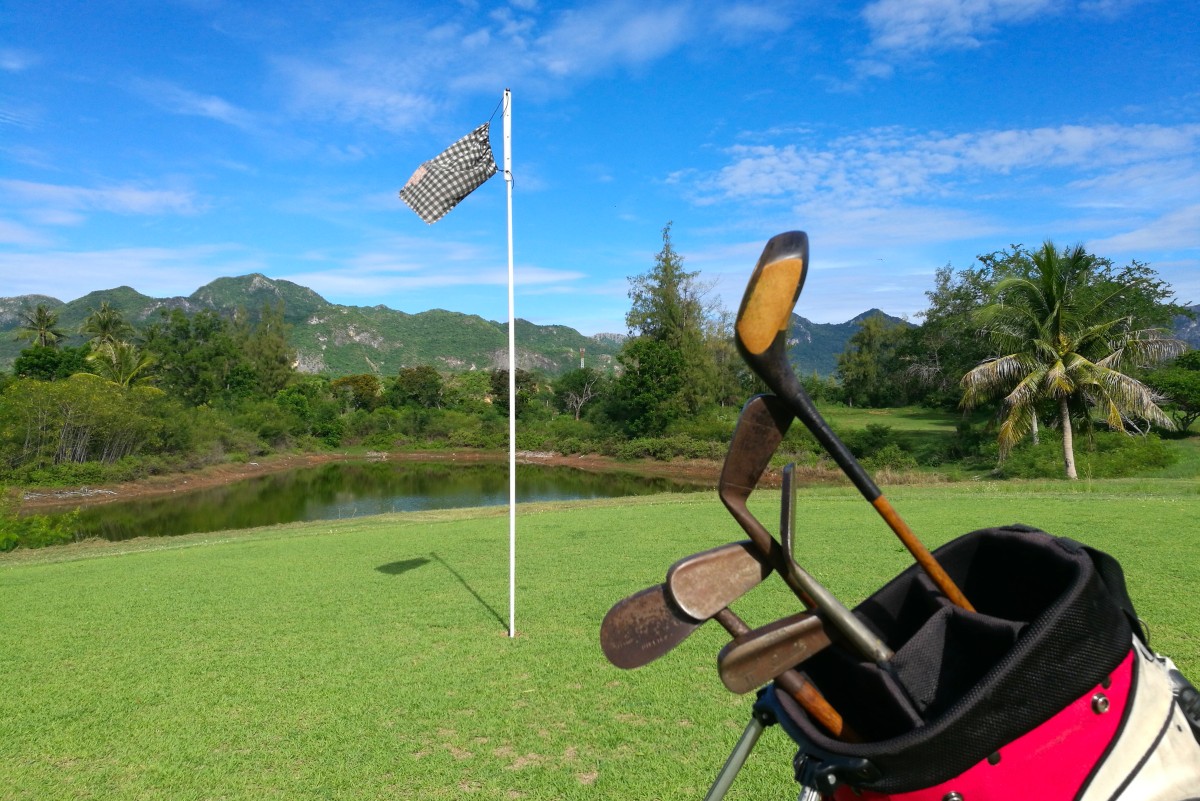When I play golf, I much prefer to walk, so the choice between walking and riding is usually an easy one.
 These all-terrain vehicles are staged near the first tee, ready for action.
These all-terrain vehicles are staged near the first tee, ready for action.
I’ll admit, though, that when I visited a course in western Thailand with these ATV carts for rent, I was tempted to ride. I was going to play 9 holes. At only 250 baht ($7.90 USD), that’s a great value.
 ATV carts available at reasonable prices.
ATV carts available at reasonable prices.
After a few minutes of deliberation, I decided to walk. It was a weekend, and I wasn’t in a hurry. I figured I can come back another time to blast around the course on a 4-wheeler. Heck, I may even splurge for the 400 baht 18 hole rate.
 I could have been on a 4-wheeler, but I chose to walk instead.
I could have been on a 4-wheeler, but I chose to walk instead.
Plus, I like to see what’s growing, and also what’s not growing, as I walk around. I reckon that’s easier to see at walking speed. One grass you won’t see on the fairways of these low-maintenance upcountry courses in Thailand is manilagrass—Zoysia matrella. You won’t see bermudagrass or seashore paspalum either. The zoysia and paspalum aren’t there because the fairways don’t get irrigation during the dry season. Neither of those species persist without supplemental irrigation.
 The greens of this course are manilagrass, Zoysia matrella. Manilagrass persists when it receives supplemental irrigation on greens, but you won’t find it on unirrigated fairways.
The greens of this course are manilagrass, Zoysia matrella. Manilagrass persists when it receives supplemental irrigation on greens, but you won’t find it on unirrigated fairways.
When irrigation is not supplied in the climate of central Thailand, seashore paspalum and manilagrass will eventually thin out and die. Then they get replaced by grasses that can tolerate such conditions. Bermudagrass stays alive without irrigation, but it can’t compete on these fairways because they don’t get much fertilizer either.
 A post-round meal at a nearby oceanside restaurant.
A post-round meal at a nearby oceanside restaurant.
One good thing about walking is the affect on appetite and mental state. I ate a huge lunch after the round and didn’t worry about my diet at all.